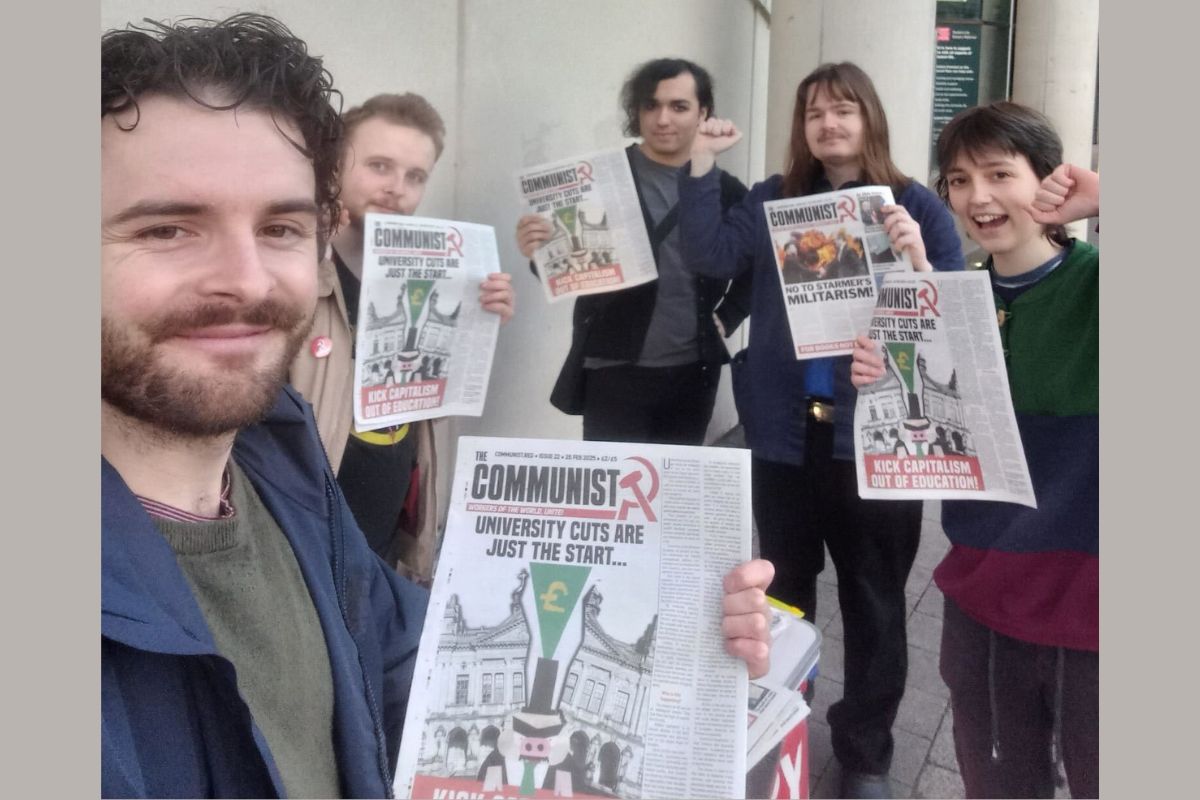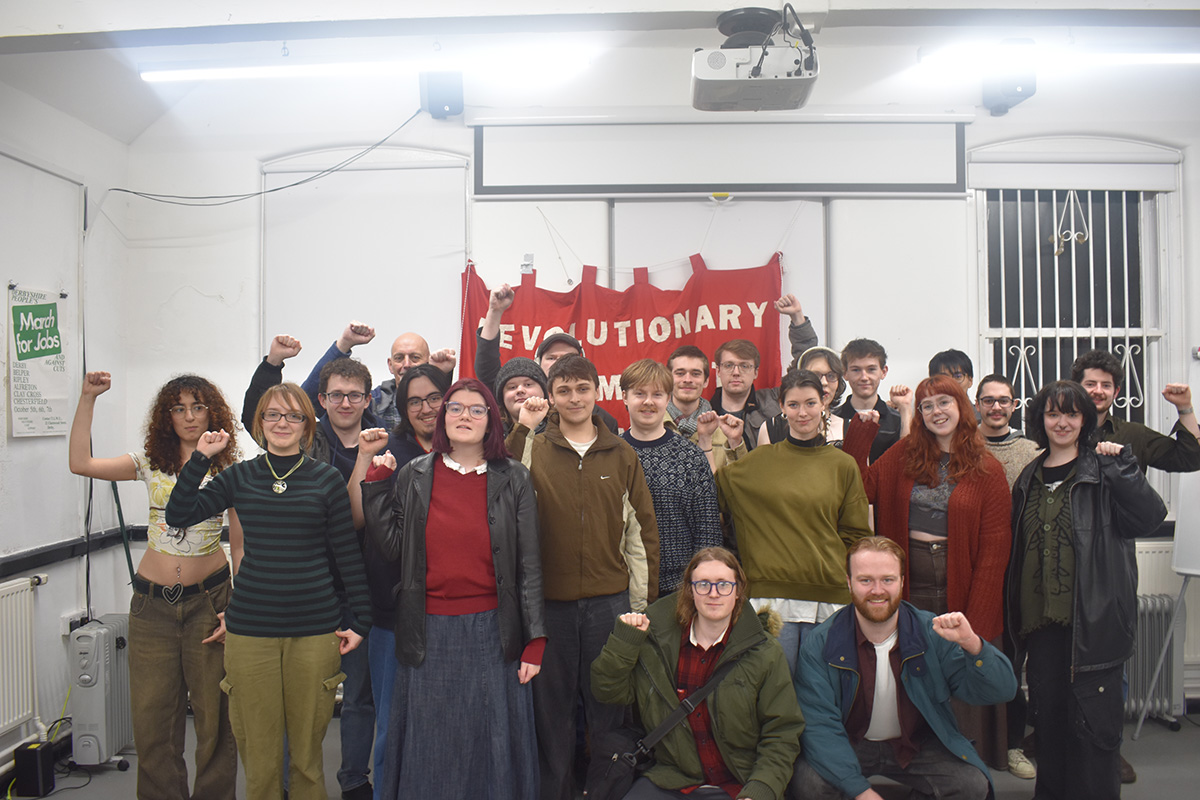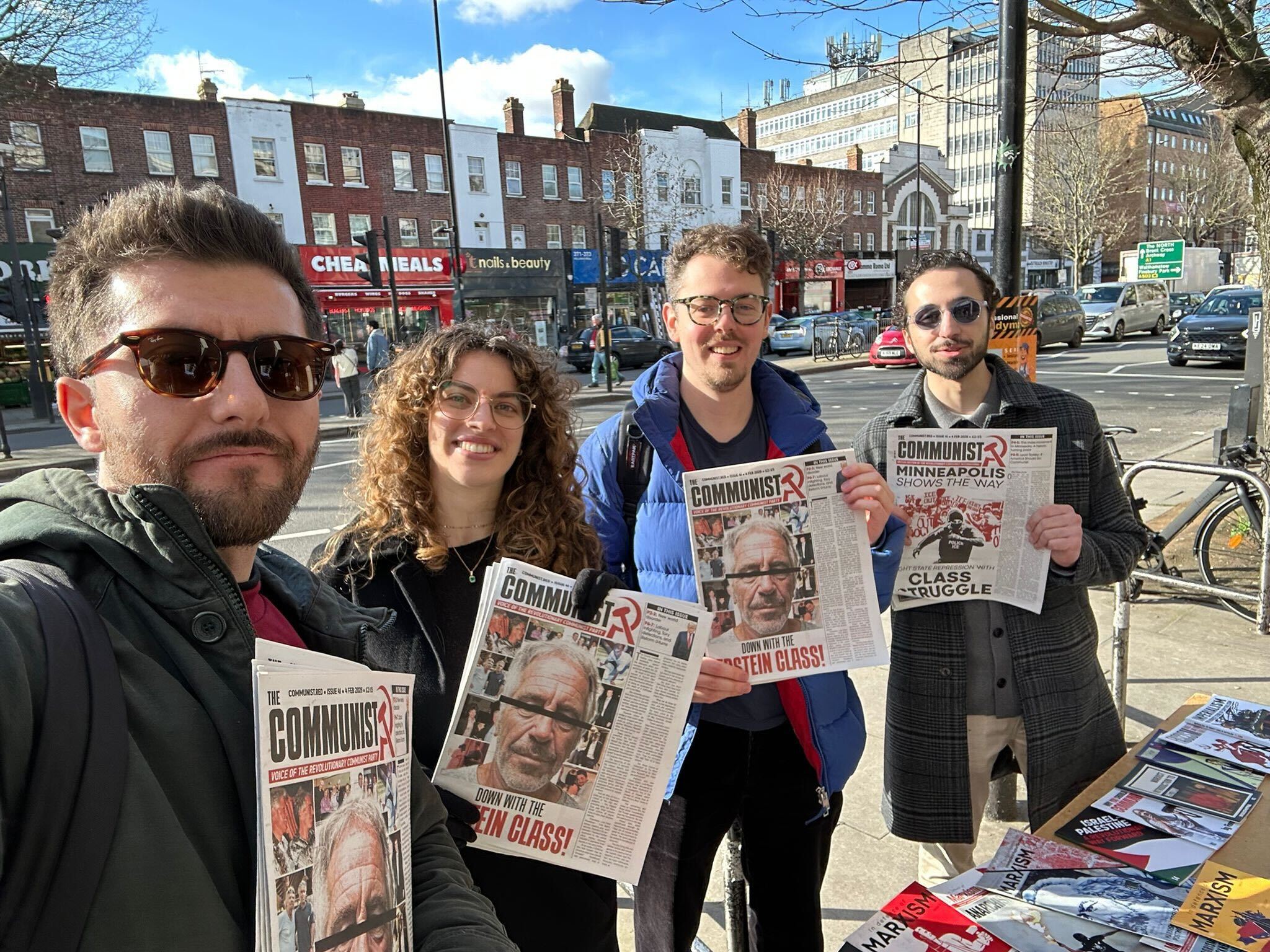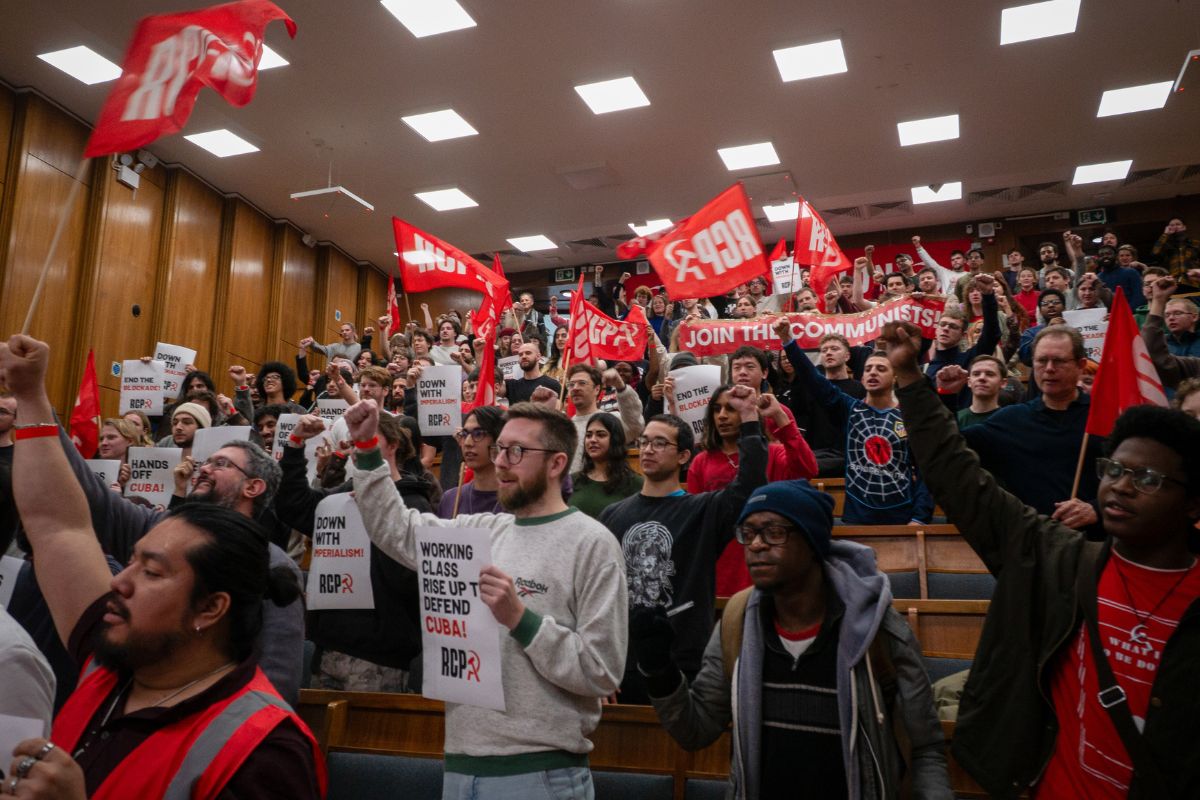Over the last few years, the forces of communism have grown rapidly in Cardiff. However, with quick growth comes new challenges.
In the summer, we realised that The Communist wasn’t being used as the ultimate party-building tool it had the potential to be.
Over the last eight months, the comrades have worked to put the paper front and centre of much of our work – and we’d like to share how we did this.
Back to basics
We set to work improving our stalls, where our paper acts as our uniform and our best avenue for meeting those most likely to join the party.
We made sure to hold at least one stall per week per branch – my own branch’s stall took place every Wednesday, like clockwork, outside the local train station at 07:45 to catch morning commuters.
If sales were low, rather than blame our surroundings or the weather we encouraged comrades to consider their role.
If there was low footfall, were you flexible enough to move to another area? If people are rushing to work, would being here every week encourage them to talk to us next time?
Did you actively approach individuals to ask their opinions or did you just sloganeer? Did you come across as friendly and approachable?
Surely enough, over the summer the paper sales, the number of contacts we discussed with, and the general enthusiasm of the comrades began to pick up.
View this post on Instagram
After every stall, we encouraged comrades to ‘debrief’ – that is, to assess how the stall went. Were there questions that were difficult to answer? How would you answer them differently next time? Did certain slogans work better than others?
If there were questions we struggled with, these were brought into the political discussions we have at the weekly branch meetings.
It was essential practice to prepare us for the autumn.
Communist correspondents
That September, comrades put their training to good use at Cardiff University freshers fair. We sold around 100 papers (in truth, we lost count!) and recruited around seven or eight brand new comrades!

Next we considered how we could best help to educate our new forces: by writing!
Every comrade should see themselves as a correspondent for the paper. Away with the attitude that you ‘cannot’ write as if this right is reserved for the journalists scurrying around the halls of Westminster.
This writing, alongside regularly reading and discussing the contents of the paper, meant comrades becoming better at explaining the crisis of capitalism – and becoming better placed to fight it.
One comrade, after writing a letter about homelessness in Cardiff asked me: “If the capitalists gain profit by exploiting the labour of the workers, why are there people without jobs? Wouldn’t the capitalists want to employ them too?”
This got us talking about the contradictions of the system.
Later, in a branch meeting, this same comrade had independently been able to explain clearly a Marxist position on AI.
Reflecting on this experience he said:
“Reading groups are very useful to understand the theory… but when it comes to practice we need to observe and understand the real world.
“A few months ago, I had come across something that really made me want to write. And when I was writing about it I had come across some practical difficulties and realised I had some flaws in my view of the subject.
“And when I had a discussion with my comrades, I came to better understand the matter. So writing about it has really helped me to deepen my understanding of theory and how it can be [applied] in the real world.”
One of the branches in Cardiff has also run weekend writing workshops right before taking the paper out into the city centre. In this way we equip comrades to be able to explain our ideas in order to recruit others.
Building a presence
The paper has also helped us make a name for ourselves on campus. For two weeks after freshers, we held regular stalls all over the university. This led to one person loudly exclaiming to a friend, “bloody hell, I see the communists everywhere!”.
While this individual certainly wasn’t happy to see us, if there are students at Cardiff University looking for a group serious about discussing revolutionary ideas and building a fighting force, they have to know we exist!
View this post on Instagram
To take advantage of our flurry of growth, we devised a monthly recruitment stalls rota for the campus. Each branch, while taking responsibility for holding one of these stalls, could send their forces to additional ones offering both greater flexibility and consistency.
It’s still early days, but it’s already showing positive signs. We have three to four stalls around campus every single week. No other political grouping or party in Cardiff is able to pull off anything like this.
With job cuts and course closures on the order of the day, we’ve used the paper to collect quotes from a UCU rally, from students in the street and from staff in the lecture halls.
View this post on Instagram
We wrote an article in order to arm comrades with the facts. The combination of stalls and writing about events on campus means we are well placed for yet more growth.
The road ahead
Don’t get us wrong – the use of the paper in Cardiff certainly isn’t perfect, and we are therefore encouraging comrades to reach out more often to friends, family, and colleagues about the ideas contained in the paper.
Among my own colleagues, I regularly discuss politics and international events, looking for any excuse to find sympathisers for revolutionary ideas.
One colleague, while not ready to join the Party herself, agreed to take a few copies of The Communist and sell them to her friends.
Through this we recruited a comrade who has since moved up to Aberystwyth to build his own cell of the party. When asked what convinced him:
“I think I was much more open to getting the paper off someone I trust and I was impressed by the enthusiasm, I wouldn’t have called myself a communist at the time but reading the paper made me realise how much I agreed with the ideas.”
The Communist isn’t just for stalls or the branch, but should be tucked in your backpack for whenever you least expect it!
On the train, at the pub, during a lecture, on your break – you never know when you will strike up a conversation with someone looking to fight this decrepit system.
We’re also encouraging the branches to write more feedback on the paper itself – ‘did your friends or colleagues have any feedback?’ – as this helps us make it the sharpest tool it can be.
View this post on Instagram
What can you do?
While this report contains plenty of bits of advice, lessons and guidance, it won’t be as simple as copying and pasting our experience in Cardiff.
Think about how the paper can take you and your comrades those extra couple of inches in building the RCP locally. Before you know it, those inches will turn into feet, and those feet into miles.






